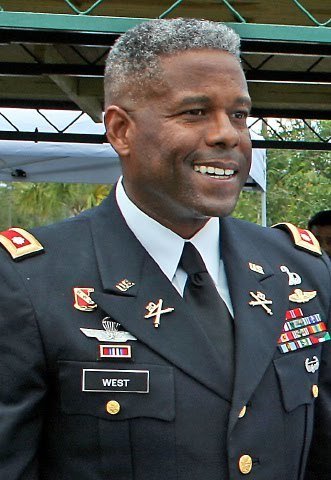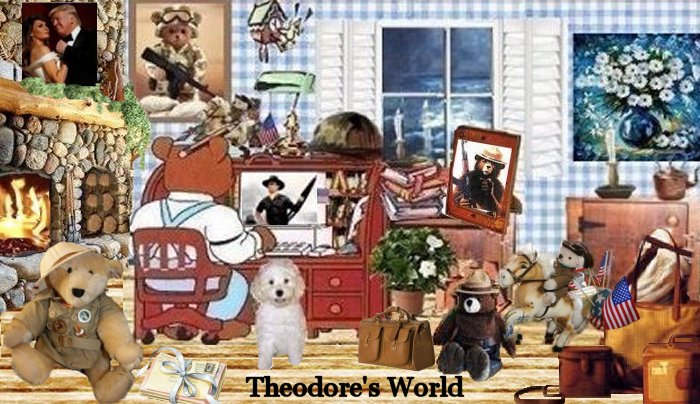« Canada loses patience with IDIOT Obama on Keystone XL, tells U.S. to decide | Main | Federal Appeals Court Rules Bloggers Have First Amendment Protections »
January 18, 2014
What I learned on the Highway of Death in Iraq - Allen West

What I learned on the Highway of Death in Iraq - Allen West
Today is the 23rd anniversary of the start of the First Persian Gulf War also known as Operation Desert Storm. I was a 29-year-old Captain in the First Infantry Division, “The Big Red One” at Ft. Riley in Kansas. Angela and I just celebrated our first wedding anniversary in December 1990 and now I was deploying into combat — something she had seen her own dad do twice to Vietnam.
I was the Fire Support Officer for Task Force 2-16 Infantry (call sign Ranger 14) in the 2nd Brigade (Dagger). Our mission was to be the lead task force of the 1st Infantry, which was the lead Division of the US VII Corps, into the breach to establish the cleared lanes for the follow-on elements to exploit and continue the attack to envelope Saddam’s Republican Guard units.
Was I nervous, yep, but this was what we had been trained to do — open desert warfare — and would be the culmination of all those National Training Center exercises.
My Artillery Battalion chose me to be the advance party Officer in Charge since I was a senior captain who had already commanded.
My responsibility was to land early and begin preparations for the arrival of the full battalion. I remember the SCUD missile alerts and the threats of frogmen saboteurs at the port. We quickly gathered our equipment, combat-loaded and deployed into the deep desert.
Finally, the day came. It was a foggy, rainy morning. Visibility was poor but we launched. There was a massive artillery preparation, cannon and multiple launch rocket systems (MLRS). it was impressive, our modern US military.
Our scout platoon radioed back “contact” and we went into our plan. Mortars engaged, and then so quickly, ceased fire because the enemy was surrendering. We had surprised the Iraqi forces by showing up so deep in the desert with such a massive force, and thanks to our plan of deception, even the media didn’t know the entire US VII Corps was where it was.
We quickly rolled up the frontline defenses, opened up breach lanes, and began our follow and support operations to ensure there would be no remnant forces attacking to our rear. We knew we had the momentum and with our powerful M1 Abrams tanks, M2 Bradleys, M109 SP Howitzers, MLRS, AH-64 Apaches, and A-10s close air support our force firepower was overwhelming.
The damage delivered to the retreating Iraqi Army was devastatingly clear on what would be known as the “Highway of Death.” The last two Republican Guard Divisions were in our sights when the “ceasefire, consolidate in place” order came.
Our brigade consolidated around the Safwan airfield area and was tasked to secure the site for the surrender negotiations.
That night, after the grand meeting, we sat at our Task Force command post under the glow of the burning oil fields, shared stories and pondered the future. We knew the mission was a resounding success, but strategically we had left the enemy still capable.
And therein lies the lesson. We knew we would have to return, as some did in rotations to Kuwait, and others to guard a “no-fly” zone. We knew the enemy would use its capability against those who had wished we deposed Saddam, and that persecution happened to the Shia and the Kurds.
And so it goes.
Carl von Clausewitz wrote that war is the imposition of one’s will upon another. History teaches us that war has one of three objectives: annihilation, assimilation, or attrition of your enemy. When you engage in limited war, you will have even more limited results and lasting residual effects.
Many of us who were captains and staff sergeants returned to Iraq 12 years later as lieutenant colonels and master sergeants. The other night Greta van Susteren asked me what would I do regarding the situation in Iraq and the return of al Qaida. I responded that we would have to return. Astonished she said, you would go back to Iraq?
What Greta and many others fail to understand is that when you do not define victory and do not defeat your enemy, you will have to return — especially against the enemy called Islamic totalitarianism.
When we commit our forces, it must be to win, and our civilian leadership must have the burning desire and passion in their hearts to set up our men and women to win.
It is a sad cycle of warfare when it is fought by politicians, and not warriors or statesmen. I am proud to have served in Desert Storm and Iraq, the third generation in our family to have served in combat. But as I watched newly promoted Major Bernard West last week, I wondered, what battlefield will he have to return to? Plato said it best, “Only the dead have seen the end of war.”

Wild Thing's comment............
God bless Allen West!
Posted by Wild Thing at January 18, 2014 12:55 AM
Comments
I see that Col. West's summation of Gulf War 1 is the same as mine. We quit two days too soon. But hey, the 100 hr. war sounds so good historically vs the 148 hour war. Both Bushes are nice guys. Piss poor presidents. We should have destroyed Saddam in the First gulf War and Dubya should never have stated that islam is a religion of peace nor that we are not at war with islam. The lack of aggressiveness on both mens' part have/will still cost America dearly.
Posted by: TomR,armed in Texas at January 18, 2014 12:31 PM
thanks to our plan of deception, even the media didn’t know the entire US VII Corps was where it was.
It's a good think the media didn't know or the element of surprise would have been lost.
Posted by: bobf at January 19, 2014 10:08 AM
